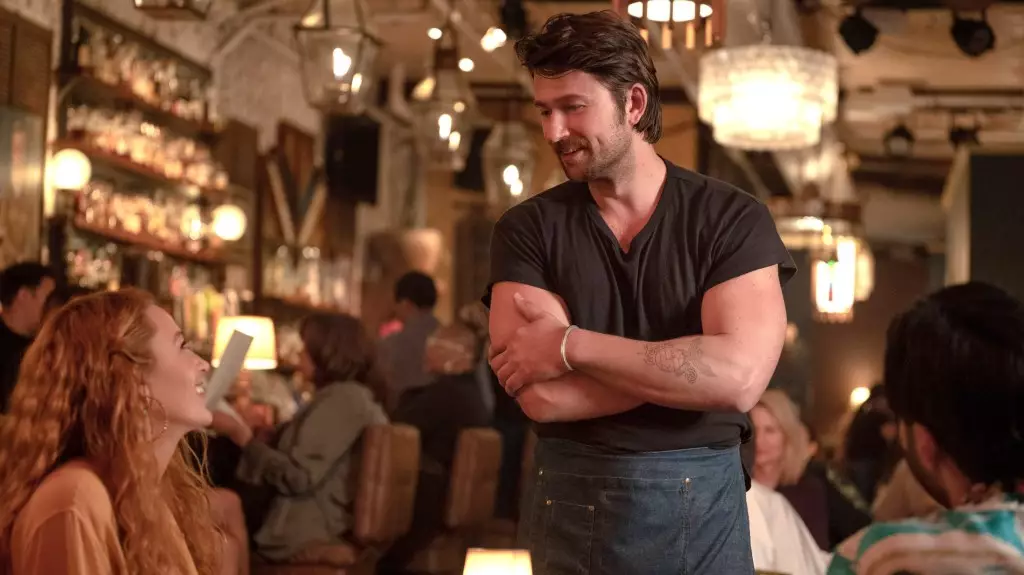The entertainment industry is currently grappling with a complex web of allegations that has reignited discussions around workplace harassment, power dynamics, and the preservation of safe working environments. The involvement of high-profile figures such as Blake Lively and Justin Baldoni has brought this issue to the forefront, particularly with Lively’s recent legal complaint against Baldoni, which recounts a series of disturbing incidents that allegedly occurred during the filming of the upcoming film “It Ends With Us.” In the aftermath, various actors and industry personalities have spoken out, raising questions about accountability, public perception, and the structures in place to protect artists.
Blake Lively’s complaint against Justin Baldoni details a range of inappropriate behaviors that she claims contributed to a hostile work environment. Among these allegations are instances of unwanted physical contact, unsolicited sexual remarks, and violations of personal space, which collectively paint a troubling picture of Baldoni as a director. The most shocking revelations include Lively’s assertions that Baldoni engaged in actions that bordered on harassment, such as improvising intimate scenes and sharing inappropriate content without consent.
This complaint has sparked considerable discourse, underscoring the pervasive culture of silence that often plagues individuals in the film industry. Lively’s experience resonated with many, mirroring broader societal issues of gender-based power imbalances. The quick actions taken against Baldoni, including his dismissal from the talent agency WME—which represents prominent Hollywood figures—illustrate the potential for significant, immediate consequences in a landscape that is rapidly evolving to prioritize accountability.
In the wake of Lively’s allegations, a wave of solidarity emerged from her peers, marking a turning point in Hollywood’s collective response to allegations of sexual misconduct. Actors like Gwyneth Paltrow and Amy Schumer publicly voiced their support for Lively, showcasing a united front against the alleged harassment. Furthermore, the collective condemnation from the SAG-AFTRA union indicates a shift within the industry, highlighting an urgent need to prioritize the safety and well-being of participants in film production.
Brandon Sklenar’s evident passion in his Instagram post reading “FOR THE LOVE OF GOD READ THIS,” emphasizes the ongoing conversation regarding the importance of listening to women in Hollywood. He has pointed out the damage done to women’s credibility and experiences by the kind of public sentiment that has historically favored the accused, often leading to further victimization.
As this situation unfolded, the role of crisis public relations within the industry became increasingly scrutinized. Allegations surfaced suggesting that Baldoni and associated parties may have orchestrated a smear campaign against Lively, seeking to undermine her credibility in the eyes of the public. The term “astroturfing,” which typically refers to orchestrated efforts to create a false impression of grassroots support for a cause, has been particularly highlighted in discussions around this case.
The media has played a dual role in shaping public perception, facilitating both the spread of allegations and the potential for narratives that protect powerful individuals. This moment serves as a wakeup call for journalists and media outlets, spotlighting their responsibility in fairly representing all parties involved and providing a platform for marginalized voices.
As the dust settles from these recent revelations, the film industry stands at a potential turning point. There is an increasing recognition of the necessity for transparent policies aimed at preventing harassment and ensuring that individuals feel safe to speak out against misconduct. This moment could serve as a catalyst for significant reforms within Hollywood, reshaping how productions are managed and how relationships between cast and crew members are navigated.
The consequences that have followed Lively’s allegations against Baldoni demonstrate a growing intolerance for harassment and the mechanisms that allow it to persist. As more individuals step forward with their own experiences, there is hope that the ongoing discourse will foster a climate where accountability prevails over silence and complicity.
The situation surrounding Blake Lively and Justin Baldoni highlights the urgent need for systemic change within Hollywood. With notable figures and organizations taking a stand, it is apparent that industry paradigms are shifting. The courage shown by individuals like Lively, who choose to share their experiences, may very well redefine what it means to create art in a safe and respectful environment, propelling the industry towards a more equitable future.


Leave a Reply